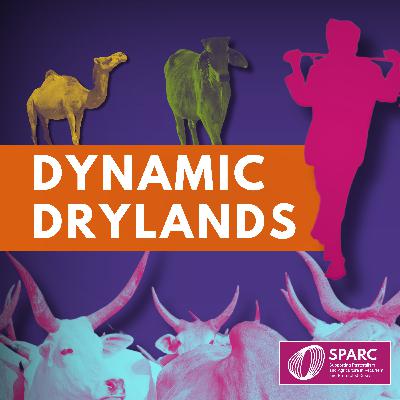
Dynamic Drylands
Author: SPARC
Subscribed: 1Played: 15Description
Farmers and herders living in the drylands of Africa and the Middle East are used to dealing with uncertainty. But their resilience is being tested by new and complex challenges.
In this podcast series, broadcaster Bola Mosuro talks to researchers, aid workers and herders about some of the new crises facing the drylands and the dynamic ways in which people are responding to meet them. She asks: what does long-term resilience look like in these fast-changing places? How are pastoralists and farmers adapting and innovating? And what can governments, development organisations and businesses do to more effectively support them?
One thing is clear: the drylands are more dynamic than you might think.
This series is produced by Supporting Pastoralism and Agriculture in Recurrent and Protracted Crises (SPARC), a six-year research programme managed by Cowater, the International Livestock Research Institute (ILRI), Mercy Corps and ODI and commissioned by the UK’s Foreign, Commonwealth and Development Office (FCDO).
The podcast is produced by Loftus Media Ltd.
For more information, visit www.sparc-knowledge.org/dynamic-drylands-podcast or find us on X (@SPARC_ideas).
Note: This material has been funded by UK aid from the UK government; however, the views expressed do not necessarily reflect the UK government’s official policies.
Hosted on Acast. See acast.com/privacy for more information.





